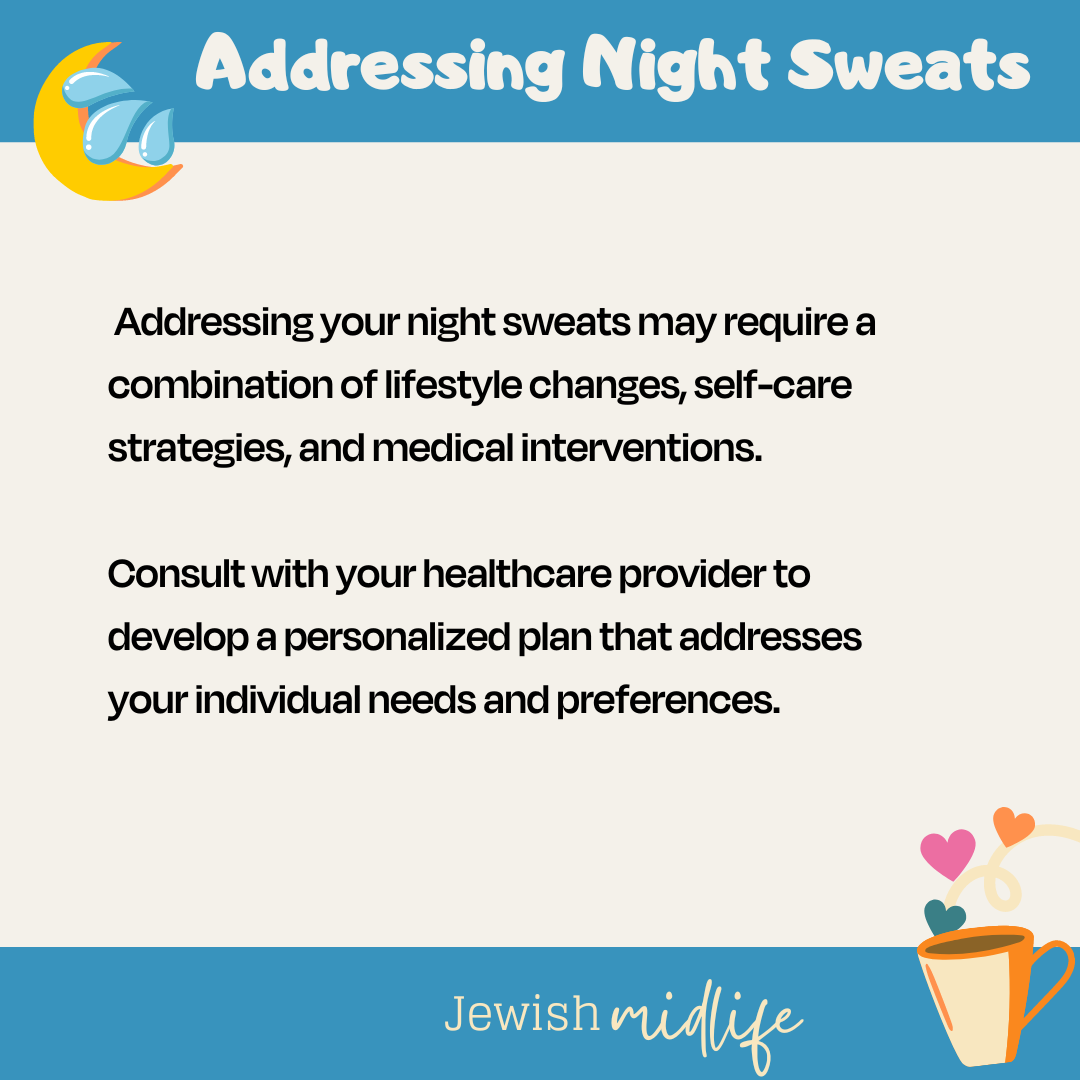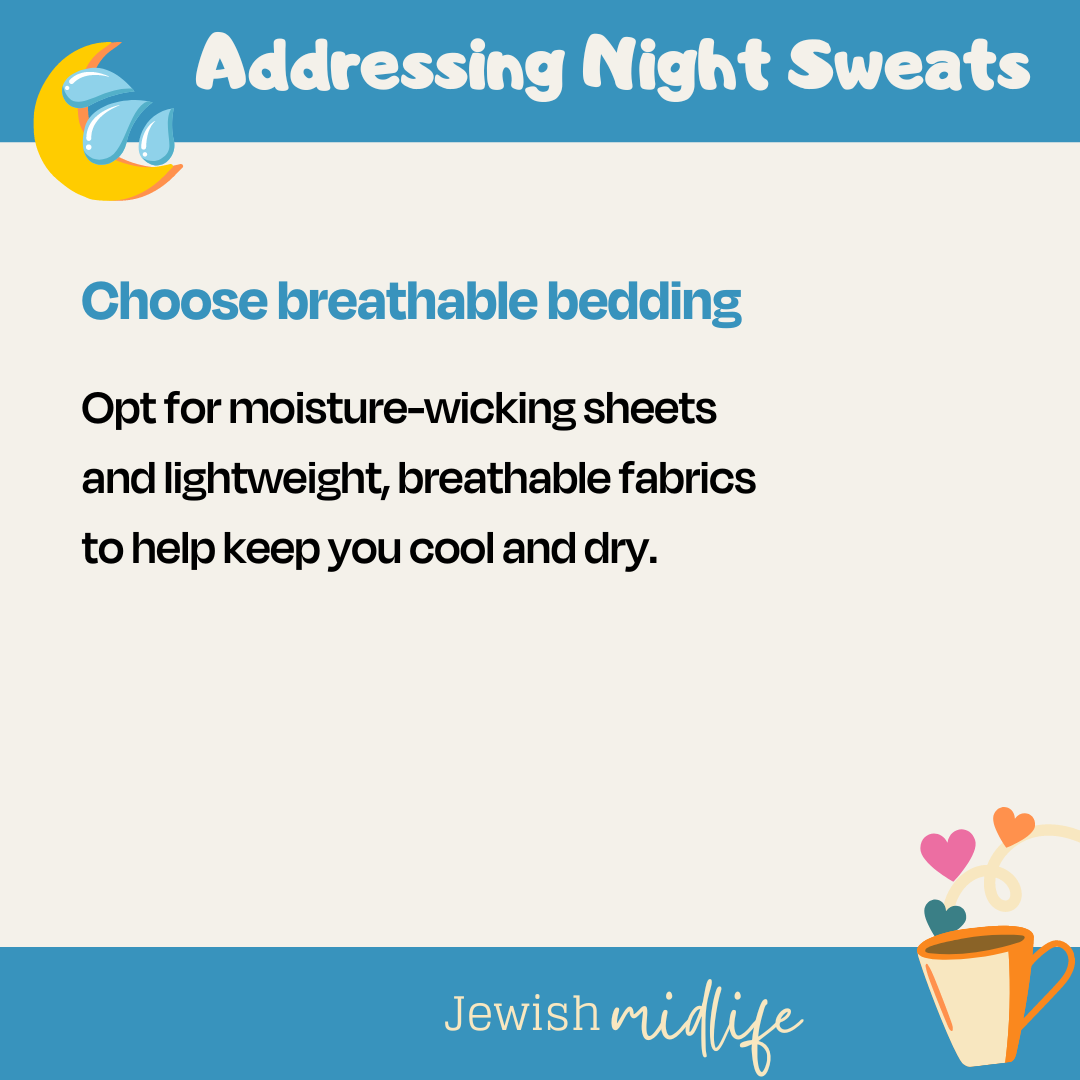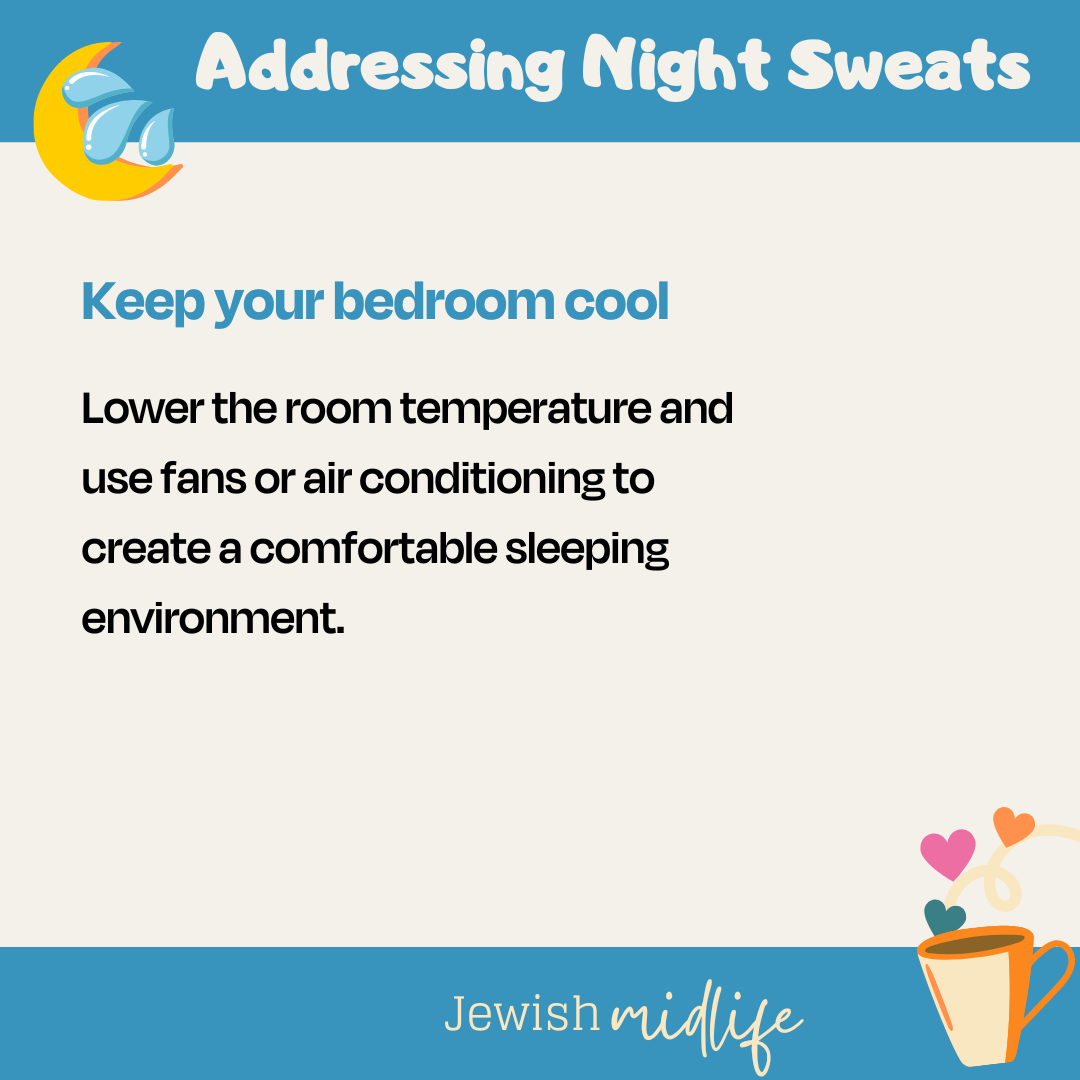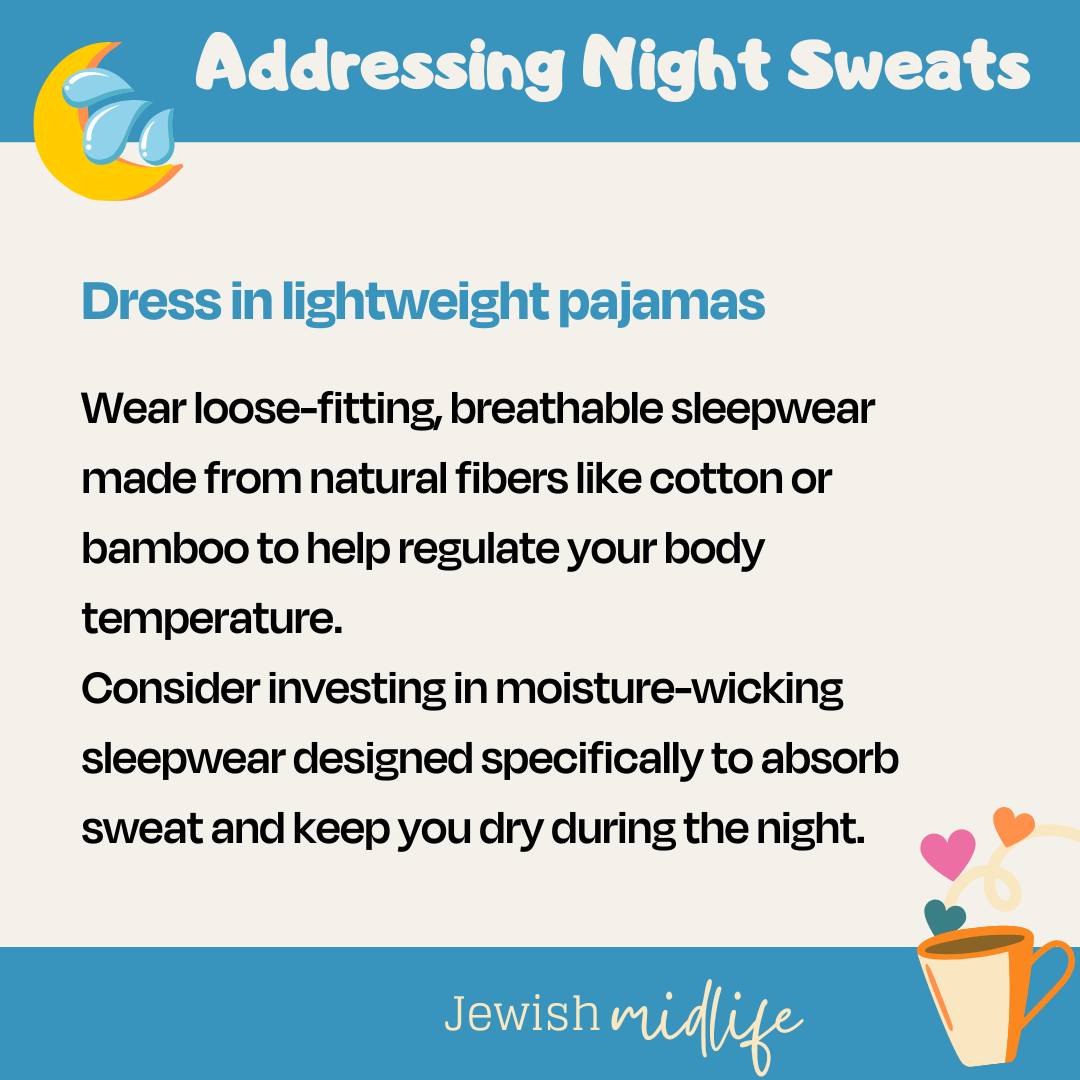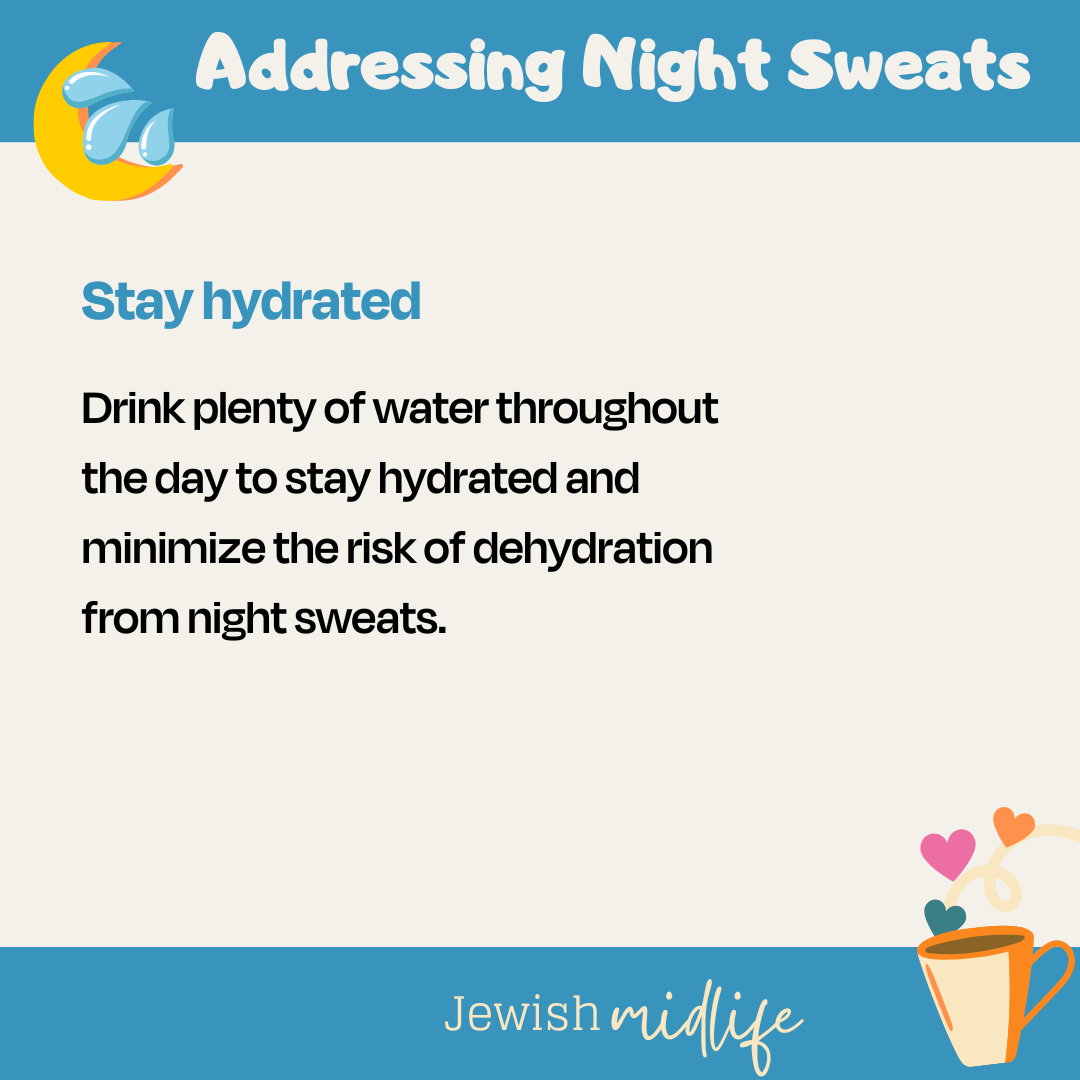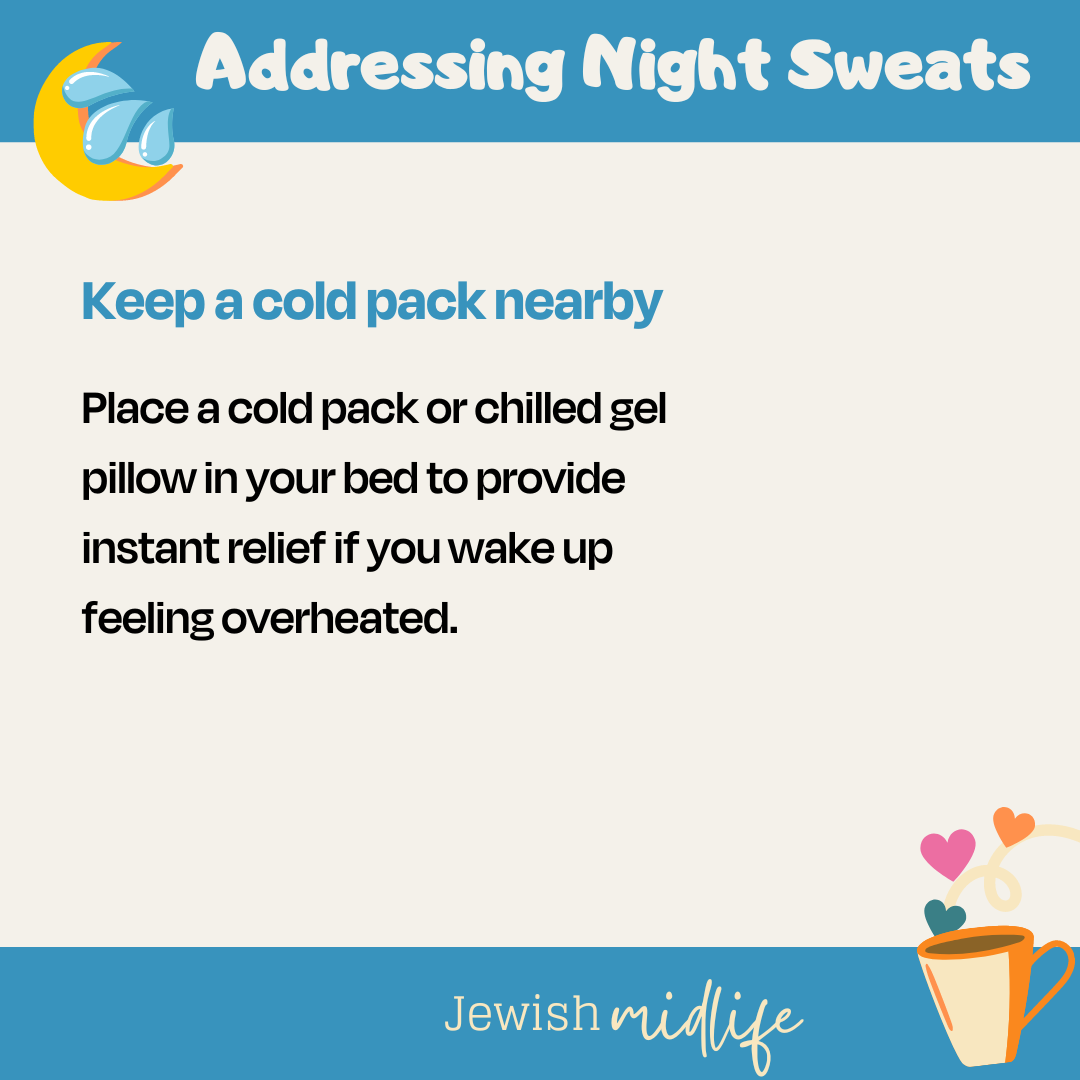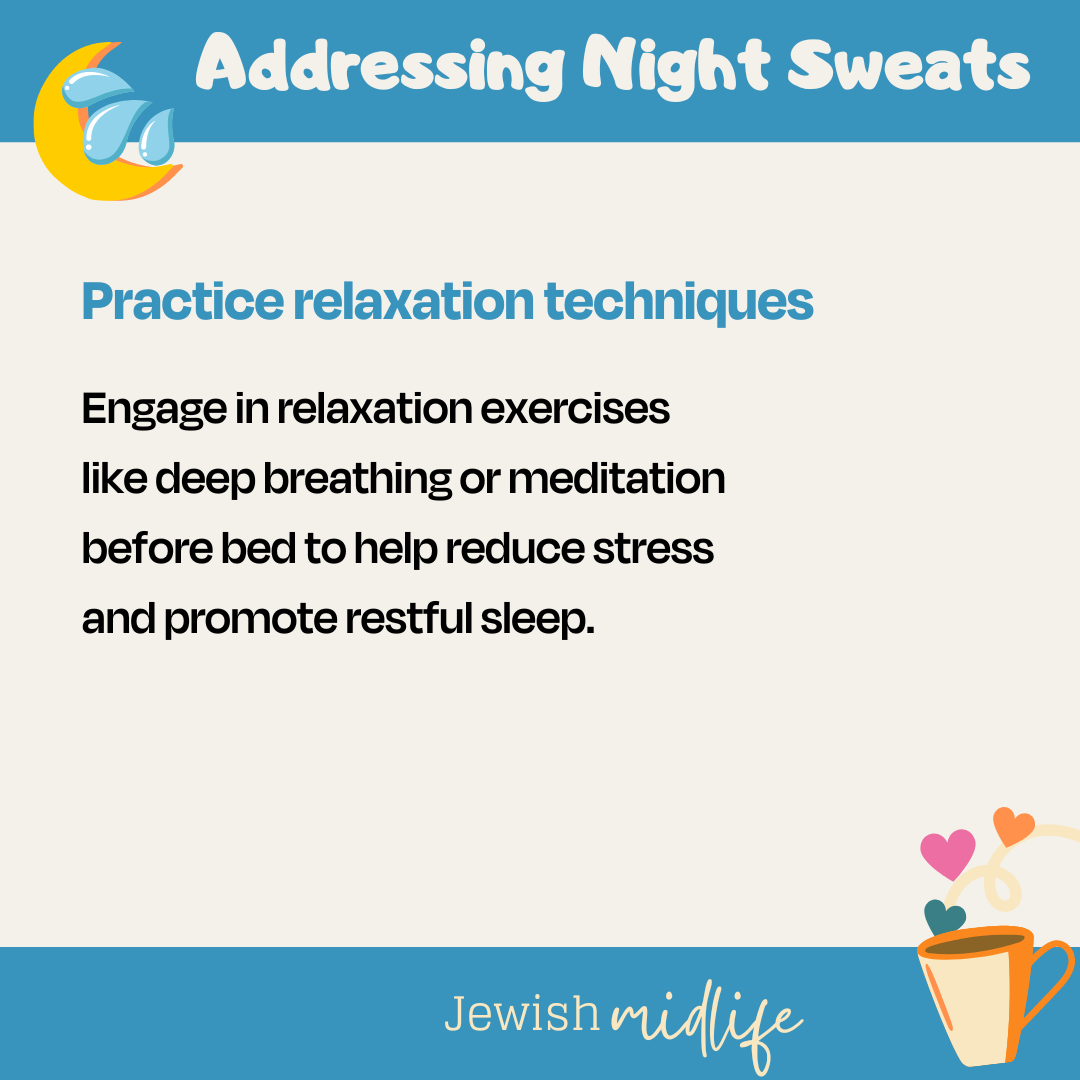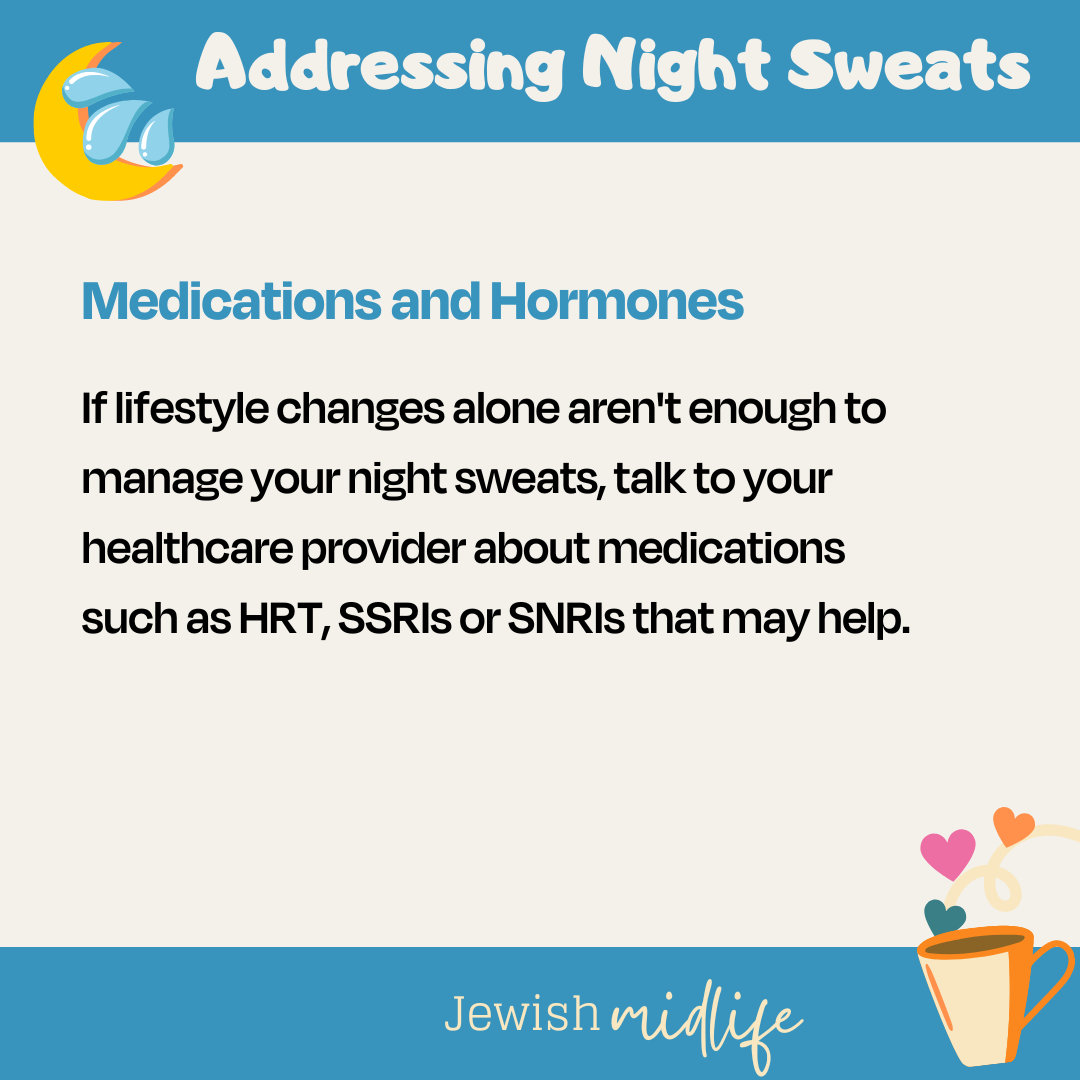Addressing your night sweats may require a combination of lifestyle changes, self-care strategies, and medical interventions. Consult with your healthcare provider to develop a personalized plan that addresses your individual needs and preferences.
Choose breathable bedding: Opt for moisture-wicking sheets and lightweight, breathable fabrics to help keep you cool and dry.
Keep your bedroom cool: Lower the room temperature and use fans or air conditioning to create a comfortable sleeping environment.
Dress in lightweight pajamas: Wear loose-fitting, breathable sleepwear made from natural fibers like cotton or bamboo to help regulate your body temperature. Consider investing in moisture-wicking sleepwear designed specifically to absorb sweat and keep you dry during the night.
Stay hydrated: Drink plenty of water throughout the day to stay hydrated and minimize the risk of dehydration from night sweats.
Keep a cold pack nearby: Place a cold pack or chilled gel pillow in your bed to provide instant relief if you wake up feeling overheated.
Practice relaxation techniques: Engage in relaxation exercises like deep breathing or meditation before bed to help reduce stress and promote restful sleep.
Medications and Hormones: If lifestyle changes alone aren’t enough to manage your night sweats, talk to your healthcare provider about medications such as HRT, SSRIs or SNRIs that may help.


